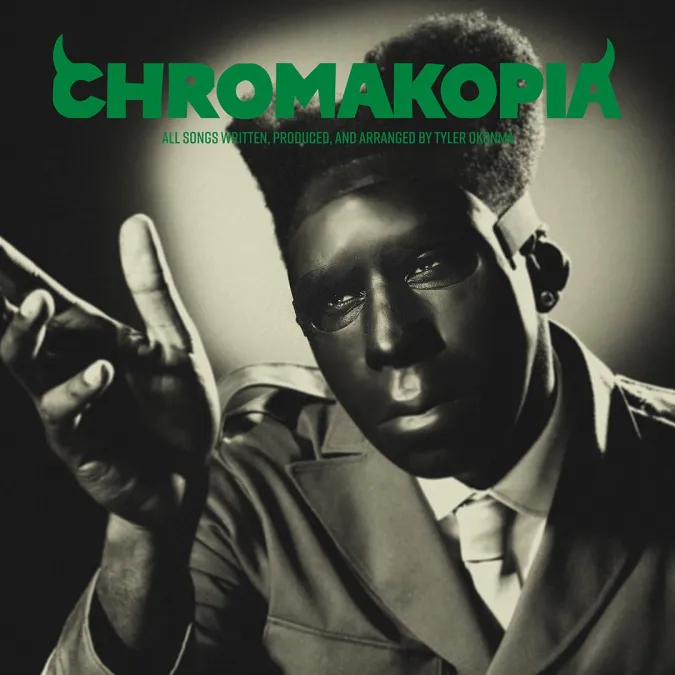“Loop around the block, eyes glued to the rearview / Rather double back than regret hearing, ‘Pew, pew,’” raps Tyler, The Creator on the lead single “Noid” from his eighth album, Chromakopia. This line drips with paranoia, reflecting the precarious reality of being a rap superstar in the modern era. At 33, Tyler finds himself a veteran in a genre where even younger peers have tragically lost their lives to violence. The devastating roll call includes TakeOff, Nipsey Hussle, PnB Rock, and countless others. By comparison, Tyler’s introspection and longevity make him a rarity in Hip Hop’s often-volatile landscape.

These themes of maturity and reflection anchor Chromakopia. Fans longing for the riotous, boundary-pushing antics of “old Tyler”—as seen on Call Me If You Get Lost—might be disappointed. But the sharp-tongued provocateur who once rattled school teachers and grandmothers hasn’t vanished entirely. He’s just older, wiser, and softer around the edges. For instance, Tyler revisits his complicated relationship with his estranged father—a recurring motif in his music. On his 2013 track “Answer” from Wolf, a young, angry Tyler unloaded venomously: “‘Dad’ isn’t your name, see, ‘f-ggot’s’ a little more fitting,” even mocking his father’s Nigerian heritage. In Chromakopia, this anger matures into something more nuanced. On “Like Him,” Tyler reflects on their shared traits before his mother, Bonita Smith—acting as a moral compass throughout the album—reveals a bombshell: his father had, at one point, wanted to be part of his life. This kind of emotional complexity defines Chromakopia, as Tyler wrestles with identity, fame, and the contradictions of being Black in America. Songs like “Take Your Mask Off” strip down the facade of toxic masculinity, a theme Tyler explored as early as his Goblin days. Here, he confronts hypocrisy within Hip Hop, religion, and his own past as a brash, tough-talking figurehead. The refrain “Take your mask off” builds throughout the song, culminating in Tyler turning the critique inward—ending as unresolved as he began.
Other tracks highlight Tyler’s multifaceted approach to storytelling. On “Judge Judy,” bawdy, provocative lyrics about sex shift suddenly to a grim suicide note. “Tomorrow” sees him contemplating parenthood and the emptiness of fame, while “Sticky” brings a moment of levity. Featuring GloRilla, Sexyy Red, and Lil Wayne, the track is an unabashedly playful exchange where Tyler sets aside introspection to revel in materialism and fun. Chromakopia arrives amid a banner year for West Coast Hip Hop, following Kendrick Lamar’s dominance over Drake and stellar releases from ScHoolboy Q, Vince Staples, and Mustard. Yet Tyler remains an outsider—too punk for mainstream Hip Hop, too eccentric for lyrical purists, and not “gangster” enough for the streets. This outsider status only deepens his unique perspective, making Chromakopia not just an album, but a testament to Tyler’s growth, contradictions, and enduring creativity.